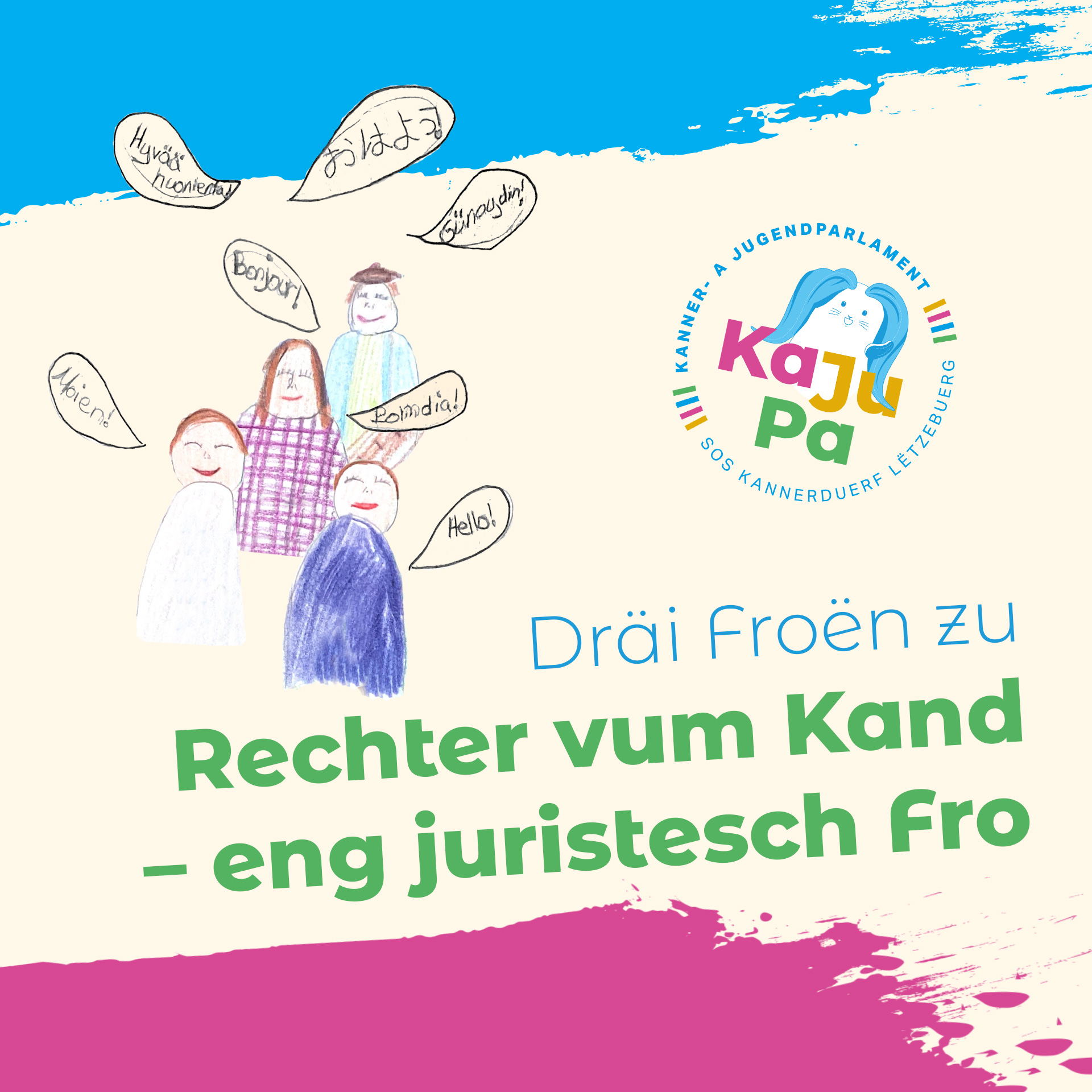Children’s Rights at the Heart of Our Practice: Between Legal Framework and Everyday Reality

The United Nations Convention on the Rights of the Child provides a fundamental foundation for educational and social practices. It reminds us that every child is a subject of rights, just like adults, and that their needs must be considered in all decisions that affect them.
In Luxembourg, the recognition of children’s rights has made significant progress in recent years. In 2023, these rights were enshrined in the national Constitution, and in 2022, the country adopted its first national action plan for children’s rights. These developments do more than influence professional and personal practices – they guide them, placing the child at the centre of attention.
Implementing these rights in practice presents legal challenges. The theoretical framework must be translated into concrete actions, often in complex situations. Applying children’s rights does not mean disregarding the rights of parents, institutions or other legal obligations. It requires ongoing reflection on how to turn principles into everyday practice.
One example is the right to participation, which calls for spaces where children’s voices are genuinely heard. This demands time, specific skills and sometimes organisational adjustments. Structures such as KaJuPa play a key role in fulfilling this mission.
Informing children about their rights is also essential to ensure they can exercise them. This involves age-appropriate tools, safe spaces for dialogue, and trusted adults who listen and respond. Awareness-raising efforts must extend beyond care settings to include schools, leisure activities and all areas of daily life.
Ultimately, dialogue remains the most effective way to bring children’s rights to life: explaining, listening, answering questions and showing that these rights are not abstract concepts, but real and tangible elements of their everyday experience.
